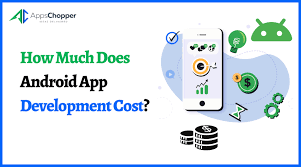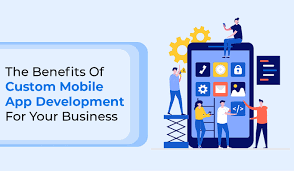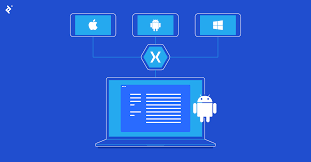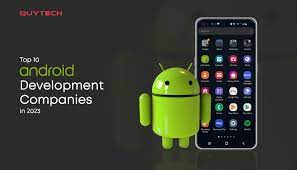Understanding the Cost Factors of Android App Development
The Cost of Android App Development
Developing an Android app can be an exciting venture, but it’s essential to understand the costs involved in the process. The cost of developing an Android app can vary significantly depending on various factors.
Factors Affecting Android App Development Costs
Complexity of the App:
The complexity of the app plays a significant role in determining the cost. Simple apps with basic features will cost less to develop compared to complex apps that require advanced functionalities.
Design and User Interface:
A well-designed and user-friendly interface is crucial for the success of an app. Investing in a visually appealing design can increase the development costs.
Features and Functionality:
The number of features and functionalities you want to include in your app will impact the overall cost. Integrating complex features such as payment gateways, geolocation services, or social media sharing can increase development expenses.
Cost Breakdown
The cost of developing an Android app typically includes:
- App design
- Development hours
- Testing and Quality Assurance
- Project management
- Maintenance and updates
Average Cost Range
The cost of developing a simple Android app can range from $5,000 to $20,000, while more complex apps with advanced features can cost anywhere from $20,000 to $100,000 or more.
Hiring Developers vs. Outsourcing
You have the option to hire developers in-house or outsource the project to a development agency. Outsourcing can sometimes be more cost-effective as you won’t have to bear overhead costs associated with hiring full-time employees.
Understanding the Costs of Android App Development: 8 Frequently Asked Questions
- How much does an Android developer cost?
- How much does Android app development cost in 2023?
- How much does it cost to launch an Android app?
- What is the average development cost of a mobile app?
- How much does it cost to put an app on Android store?
- How much should app development cost?
- How much does it cost to make an app on Android?
- How much does it cost to pay someone to build an app?
How much does an Android developer cost?
When considering the cost of Android app development, one frequently asked question is, “How much does an Android developer cost?” The cost of hiring an Android developer can vary depending on their level of experience, location, and the complexity of the project. On average, the hourly rate for an Android developer ranges from $50 to $150. Experienced developers or those based in regions with higher living costs may charge more. It’s essential to balance the cost with the developer’s expertise and track record to ensure a successful app development project within budget constraints.
How much does Android app development cost in 2023?
The cost of Android app development in 2023 can vary depending on the complexity and features of the app. Generally, developing a simple Android app with basic functionalities may range from $5,000 to $20,000, while more sophisticated apps with advanced features could cost anywhere from $20,000 to $100,000 or more. It’s important to consider factors such as design requirements, development hours, testing, project management, and ongoing maintenance when estimating the overall cost of Android app development in 2023. Hiring developers in-house or outsourcing to a development agency are options that can also influence the total cost of bringing your Android app idea to life.
How much does it cost to launch an Android app?
Launching an Android app involves various costs that can vary depending on the complexity of the app and its features. The cost to launch an Android app typically includes expenses for app design, development, testing, project management, and ongoing maintenance. On average, the cost of launching a simple Android app can range from $5,000 to $20,000. For more complex apps with advanced functionalities, the cost can escalate to $20,000 to $100,000 or more. It’s essential for businesses and individuals planning to launch an Android app to consider these factors and budget accordingly to ensure a successful app deployment.
What is the average development cost of a mobile app?
When considering the average development cost of a mobile app, it’s important to understand that the cost can vary significantly depending on factors such as the complexity of the app, design requirements, features and functionalities, platform compatibility, and ongoing maintenance needs. On average, developing a mobile app can range from a few thousand dollars for a simple app to tens of thousands or even hundreds of thousands of dollars for more complex projects. It’s crucial for businesses and individuals looking to develop a mobile app to carefully assess their specific needs and budget constraints to determine an accurate estimate for their project. Consulting with experienced app developers can provide valuable insights into the potential costs involved in bringing their app idea to life.
How much does it cost to put an app on Android store?
The cost of putting an app on the Android store, also known as Google Play Store, typically involves a one-time registration fee of $25 to become a Google Play developer. This fee allows developers to publish as many apps as they want on the platform. Additionally, there may be costs associated with app development, such as designing, developing, testing, and optimizing the app for the store. These costs can vary depending on the complexity of the app and the features it offers. Overall, while there is a nominal fee to register as a developer on the Android store, the total cost of putting an app on the platform will depend on various factors related to app development and maintenance.
How much should app development cost?
When it comes to the frequently asked question of how much app development should cost, there is no one-size-fits-all answer. The cost of app development can vary widely depending on factors such as the complexity of the app, desired features, design requirements, and development hours. Generally, a simple app with basic functionalities may cost anywhere from $5,000 to $20,000, while more complex apps with advanced features could range from $20,000 to $100,000 or more. It’s essential for businesses and individuals looking to develop an app to carefully consider their specific needs and budget constraints when determining the cost of app development.
How much does it cost to make an app on Android?
When it comes to the frequently asked question, “How much does it cost to make an app on Android?” the answer is not straightforward. The cost of developing an Android app can vary depending on several factors such as the complexity of the app, design requirements, features and functionalities, development hours, testing, maintenance, and more. Generally, creating a simple Android app can range from $5,000 to $20,000, while more complex apps with advanced features may cost anywhere from $20,000 to $100,000 or even more. It is essential for businesses and individuals looking to develop an Android app to carefully consider their specific needs and budget constraints before embarking on the development process.
How much does it cost to pay someone to build an app?
When considering the cost of paying someone to build an app, it’s important to understand that the expenses can vary based on several factors. The cost of hiring a professional app developer depends on the complexity of the app, desired features, design requirements, and development time. Typically, the price range for hiring someone to build an app can start from a few thousand dollars for a simple app and go up to six figures for more complex projects with advanced functionalities. It’s essential to communicate your specific needs and budget constraints clearly with the developer to get an accurate estimate of the project cost.










